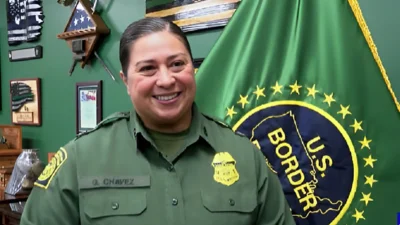The Congressional Record is a unique source of public documentation. It started in 1873, documenting nearly all the major and minor policies being discussed and debated.
“WE MUST TAKE ACTION TO PRESERVE AMERICA'S CORAL REEFS” mentioning the Department of Interior was published in the House of Representatives section on pages H4741-H4742 on June 5, 2018.
The Department oversees more than 500 million acres of land. Downsizing the Federal Government, a project aimed at lowering taxes and boosting federal efficiency, said the department has contributed to a growing water crisis and holds many lands which could be better managed.
The publication is reproduced in full below:
WE MUST TAKE ACTION TO PRESERVE AMERICA'S CORAL REEFS
The SPEAKER pro tempore. The Chair recognizes the gentlewoman from Guam (Ms. Bordallo) for 5 minutes.
Ms. BORDALLO. Mr. Speaker, today I rise to reintroduce the Coral Reef Conservation Reauthorization Act. This bipartisan, comprehensive bill builds on legislation that I have sponsored in the House since 2009 to reauthorize the Coral Reef Conservation Act of 2000.
I want to thank each of my 13 original cosponsors for their support: Representatives Soto, Wasserman Schultz, Hastings, Crist, Castor, Hanabusa, Gabbard, Radewagen, Gonzalez-Colon, Rutherford, Sablan, Plaskett, and Mast.
Our bill for this 115th Congress makes amendments to update and strengthen the 2000 law and reflects coral reef conservation work governmentwide.
Coral reefs are God-given natural infrastructure that provide real, tangible benefits to our coastal and island communities, as well as the Nation at large.
Healthy, resilient coral reefs safeguard against extreme weather, shoreline erosion, and coastal flooding and serve as natural breakwaters for maritime ports and harbors of refuge. Without the reefs to absorb the blunt force of wave action, many island and coastal communities would simply wash away.
Coral reefs also support countless American tourism jobs and valuable fisheries across the United States. According to the National Oceanic Atmospheric Administration, NOAA, coral reefs support upwards of 12 percent of global fisheries and an estimated 25 percent of all known fish species.
In addition, coral reefs are the world's greatest source of biodiversity, covering less than 1 percent of the ocean floor but home to some 25 percent of all known marine species. U.S. territorial waters in the Pacific support the majority of our Nation's shallow water corals.
Guam, my home, sits adjacent to the western Pacific Ocean's Coral Triangle, one of the most biologically diverse and important marine ecosystems on the planet, and yet the planet's coral reefs are in crisis. 2017 marked a prolonged, unprecedented global coral bleaching event. Guam and the western Pacific, long home to some of the most well-preserved reefs in the world, were impacted severely.
Ocean acidification, warming sea temperatures, coastal pollution, invasive species, and other stressors linked to human activity and global climate change threaten to wipe out these incredibly productive ecosystems. These threats have necessitated special protections and listing under the Endangered Species Act for 25 coral species, to date.
The Coral Reef Conservation Reauthorization Act addresses these challenges head-on, with concrete Federal actions and policy changes that will make a difference by:
First, strengthening the Federal response to coral reef emergencies, including vessel groundings, natural disasters, harmful algae blooms, and unexploded ordnance underwater;
Second, minimizing damage to coral reefs from invasive or nuisance species, vessel impacts, marine debris, and derelict fishing gear;
Third, directing new Federal grant making for local coral reef conservation projects;
Fourth, recognizing the importance of coral reef fisheries and the expertise of local fishery and wildlife management agencies;
Fifth, developing the first-ever national guidelines for environmentally responsible artificial reefs; and
Last, engaging our Nation's marine laboratories, aquariums, Sea Grant colleges, and coral reef institutions in federally funded research on coral biodiversity, propagation, and resiliency.
In particular, our bipartisan bill provides congressional authorization for the U.S. Coral Reef Task Force, codifying Executive Order 13089.
Since 1998, Mr. Speaker, the Coral Reef Task Force has coordinated Federal and local actions to protect coral reefs nationwide. Our bill preserves full voting membership on the task force for the Governors of all five U.S. territories and the States of Florida and Hawaii.
The Coral Reef Conservation Reauthorization Act also authorizes the U.S. Department of the Interior to take action to conserve our coral reefs. Many of our most spectacular coral resources lie within national parks, national wildlife refuges, and marine national monuments.
Congress needs to take action to protect our Nation's irreplaceable coral reef resources, and that starts with reauthorizing the Coral Reef Conservation Act. Mr. Speaker, I urge all Members of our House to join us in cosponsoring the Coral Reef Conservation Reauthorization Act of 2018, and I look forward to working with our House and Senate colleagues to advance this important legislation.
____________________








